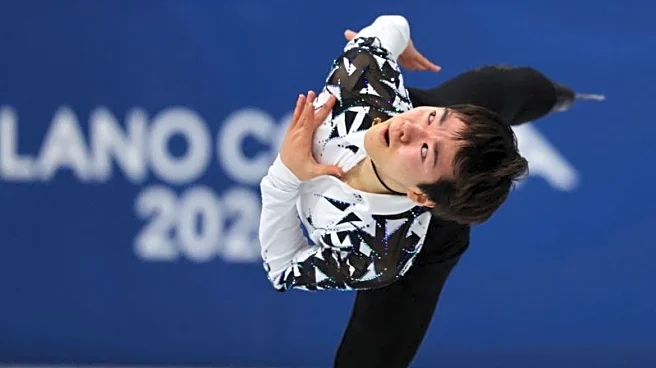What's Happening?
England achieved a ninth consecutive test victory by defeating Fiji 38-18 at Twickenham. The match was closely contested, with England pulling away in the final stages thanks to a try by Henry Arundell
in the 69th minute. Fiji's performance was hampered by two yellow cards, which allowed England to capitalize on the man advantage and score crucial tries. Despite Fiji's powerful and dynamic play, England managed to maintain control, scoring six tries in total. The victory marks England's longest winning streak in eight years, setting the stage for their next match against New Zealand.
Why It's Important?
This victory is significant for England as it extends their winning streak and boosts their confidence ahead of facing New Zealand, a formidable opponent. The match also highlights England's ability to adapt and overcome challenges posed by Fiji's aggressive style of play. For Fiji, the loss ends their chance to achieve a historic six-test winning streak, underscoring the competitive nature of international rugby. The outcome of this match may influence team strategies and player selections in upcoming fixtures, impacting the dynamics of international rugby competitions.
What's Next?
England is set to face New Zealand in their next match, which will test their ability to maintain their winning streak against a top-tier team. The outcome of this match could have implications for England's standing in international rugby and their preparation for future tournaments. Fiji will likely reassess their strategies and player lineup to address the issues faced during the match against England, aiming to improve their performance in subsequent games.
Beyond the Headlines
The match between England and Fiji showcases the evolving strategies in international rugby, where adaptability and resilience are crucial for success. England's ability to leverage their man advantage and Fiji's dynamic play style reflect broader trends in the sport, emphasizing the importance of tactical flexibility and player depth. This development may influence coaching approaches and training regimens in rugby teams worldwide.










